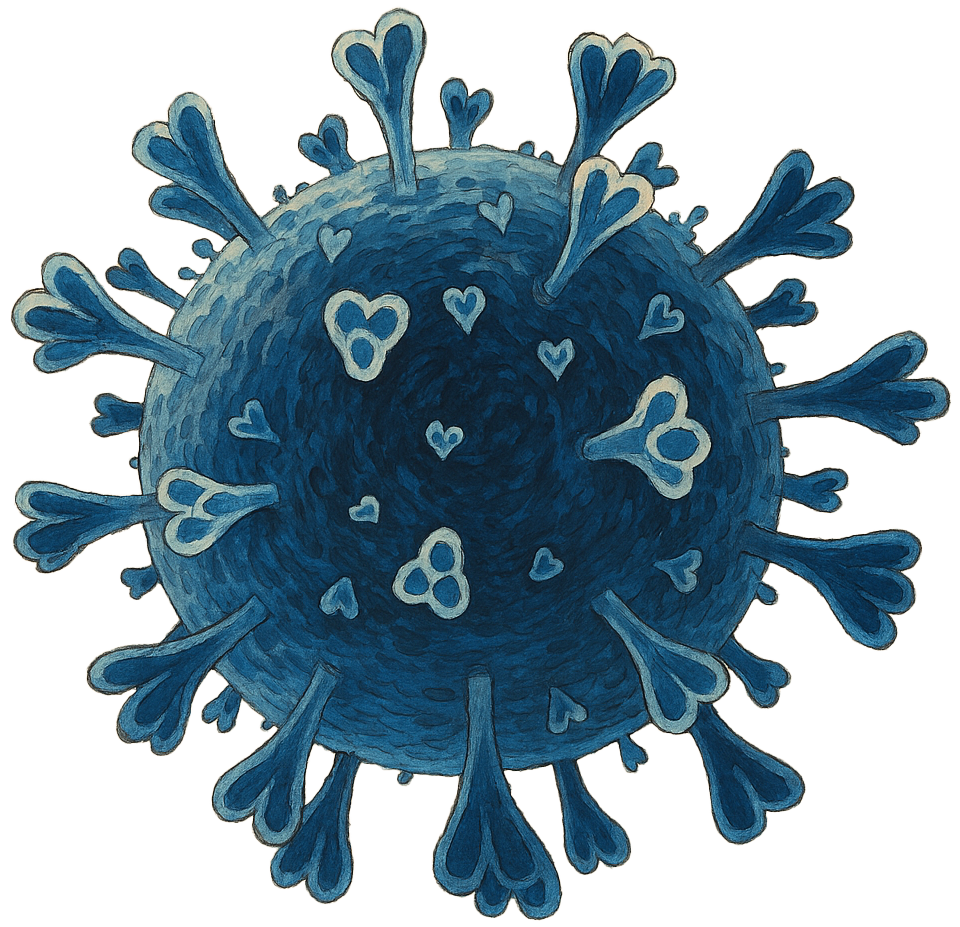Diacerein for COVID-19

COVID-19 involves the interplay of 350+ viral and host proteins and factors providing many therapeutic targets.
Scientists have proposed 10,000+ potential treatments.
c19early.org analyzes
190+ treatments.
, Diacerein reduces inflammasome activation and SARS-CoV-2 virus replication: a proof-of-concept translational study, Frontiers in Pharmacology, doi:10.3389/fphar.2024.1402032
BackgroundSevere acute respiratory syndrome coronavirus 2 (SARS-CoV-2) is linked to high mortality, primarily through an intense inflammatory response. Diacerein has emerged as a potential therapy for COVID-19 due to its potential impact in decreasing the inflammasome activation and coronavirus replication. This study aims to explore diacerein’s influence in inhibiting both viral replication and the inflammatory response after SARS-CoV-2 infection.MethodsHuman peripheral blood mononuclear cells (PBMCs) were obtained from healthy volunteers and infected in vitro with SARS-CoV-2. Additionally, we carried out a pilot randomized, double-blind, placebo-controlled study with 14 participants allocated to diacerein (n = 7) or placebo (n = 7) therapies every 12 h for 10 days. The primary endpoint was change in plasma markers of inflammasome activation (NLRP3, caspase-1, and gasdermin-D).ResultsIn vitro protocols have shown that rhein, diacerein’s primary metabolite, decreased IL-1β secretion caused by SARS-CoV-2 infection in human PBMCs (p < 0.05), and suppressed viral replication when administered either before or after the virus incubation (p < 0.05). This later effect was, at least partially, attributed to its inhibitory effect on 3-chymotrypsin-like protease (SARS-CoV-2 3CLpro) and papain-like protease in the SARS-CoV-2 (SARS-CoV-2 PLpro) virus and in the phosphorylation of proteins related cytoskeleton network (p < 0.05). Diacerein-treated COVID-19 patients presented a smaller area under the curve for NLRP3, caspase-1 and GSDM-D measured on days 2, 5, and 10 after hospitalization compared to those receiving a placebo (p < 0.05).ConclusionThe indicated mechanisms of action of diacerein/rhein can reduce viral replication and mitigate the inflammatory response related to SARS-CoV-2. These findings are preliminary and require confirmation in clinical trials.
, Signaling pathways and potential therapeutic targets in acute respiratory distress syndrome (ARDS), Respiratory Research, doi:10.1186/s12931-024-02678-5
AbstractAcute respiratory distress syndrome (ARDS) is a common condition associated with critically ill patients, characterized by bilateral chest radiographical opacities with refractory hypoxemia due to noncardiogenic pulmonary edema. Despite significant advances, the mortality of ARDS remains unacceptably high, and there are still no effective targeted pharmacotherapeutic agents. With the outbreak of coronavirus disease 19 worldwide, the mortality of ARDS has increased correspondingly. Comprehending the pathophysiology and the underlying molecular mechanisms of ARDS may thus be essential to developing effective therapeutic strategies and reducing mortality. To facilitate further understanding of its pathogenesis and exploring novel therapeutics, this review provides comprehensive information of ARDS from pathophysiology to molecular mechanisms and presents targeted therapeutics. We first describe the pathogenesis and pathophysiology of ARDS that involve dysregulated inflammation, alveolar-capillary barrier dysfunction, impaired alveolar fluid clearance and oxidative stress. Next, we summarize the molecular mechanisms and signaling pathways related to the above four aspects of ARDS pathophysiology, along with the latest research progress. Finally, we discuss the emerging therapeutic strategies that show exciting promise in ARDS, including several pharmacologic therapies, microRNA-based therapies and mesenchymal stromal cell therapies, highlighting the pathophysiological basis and the influences on signal transduction pathways for their use.
, Repurposing of known drugs for COVID-19 using molecular docking and simulation analysis, Bioinformation, doi:10.6026/97320630019149
We selected fifty one drugs already known for their potential disease treatment roles in various studies and subjected to docking and molecular docking simulation (MDS) analyses. Five of them showed promising features that are discussed and suggested as potential candidates for repurposing for COVID-19. These top five compounds were boswellic acid, pimecrolimus, GYY-4137, BMS-345541 and triamcinolone hexacetonide that interacted with the chosen receptors 1R42, 4G3D, 6VW1, 6VXX and 7MEQ, respectively with binding energies of -9.2 kcal/mol, -9.1 kcal/mol, -10.3 kcal/mol, -10.1 kcal/mol and -8.7 kcal/mol, respectively. The MDS studies for the top 5 best complexes revealed binding features for the chosen receptor, human NF-kappa B transcription factor as an important drug target in COVID-19-based drug development strategies.
Please send us corrections, updates, or comments.
c19early involves the extraction of 200,000+ datapoints from
thousands of papers. Community updates
help ensure high accuracy.
Treatments and other interventions are complementary.
All practical, effective, and safe
means should be used based on risk/benefit analysis.
No treatment or intervention is 100% available and effective for all current
and future variants.
We do not provide medical advice. Before taking any medication,
consult a qualified physician who can provide personalized advice and details
of risks and benefits based on your medical history and situation. IMA and WCH
provide treatment protocols.
Thanks for your feedback! Please search before submitting papers and note
that studies are listed under the date they were first available, which may be
the date of an earlier preprint.
